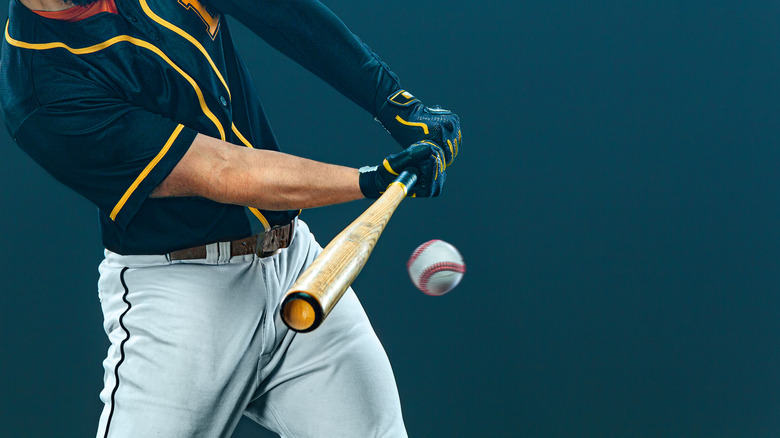The Real Reason We Say 'On The Ball'
That's so cool, daddy-o! He's so square. She's so fly. Nah, that's whack. It's bananas: B-A-N-A-N-A-S (thanks, Gwen Stefani). Yes, the English language is chock full o' fun expressions and slang. But if you don't keep your eye "on the ball," that ball of verbiage might fly by you directly into the catcher's mitt of lost time and strike you out of sounding up-to-date in conversations with youngsters and their newfangled jive talk. See, who said mixing metaphors was a bad practice?
So yes, staying "on the ball," keeping your eye "on the ball," and other such ball-focused actions definitely relate to sports. But which ball, and which sport, and what year or country, we're not too sure. As Phrases says, the earliest example of the phrase in print dates back to English novelist William Kingston's 1864 "Ernest Bracebridge, or, Schoolboy Days." He wrote, "Ellis seized the bat with a convulsive clutch ... Remembering Ernest's advice, he kept his eye on the ball, and hit it so fairly that he sent it flying away to a considerable distance. 'Capital!' cried Ernest. 'Run! run! — two bases at least.'" Bear in mind that Kingston definitely writes like he's repeating a common phrase, indicating that "on the ball" was likely in commonly spoken circulation by then. Capital, indeed.
And even though that passage sounds like a description of baseball, it was actually a description for "rounders," a smaller-scale progenitor of baseball with underhanded throws, per the MLB.
Keeping an eye on the ball of focus
It makes sense that we extended the definition of "on the ball" from striking a ball with a stick to staying focused on tasks. If someone is "on the ball," they're sharp, attentive, don't forget things, etc. That's the same kind of focus needed to follow a ball flying through the air and hit it.
Per Phrases, the connection between "on the ball" and baseball didn't appear until 1910, when The Indianapolis Star wrote, "Graham put something on the ball that fooled even Bowerman." This wasn't referring to our general, figurative use, though — it just meant that Graham did something to his pitch to confuse the hitter, Bowerman. "On the ball" meant manipulating a pitch with a special technique to put some kind of spin or curve "on the ball."
We see the first modern use of the phrase about 30 years later, in 1939, when Pulitzer Prize-winning poet William Carlos Williams wrote to his publisher James Laughlin, "The novella by Quevedo ... [is] right on the ball." This, however, wasn't even published until 1989 in the book "Selected Letters." People had definitely been using the phrase "on the ball" in its modern sense by then, so the phrase must have spread into our vernacular over the course of the 20th century, bit by bit.
Alright, time to stop reading fun articles like this and get back to being on the ball of other life tasks. No bunting allowed.

